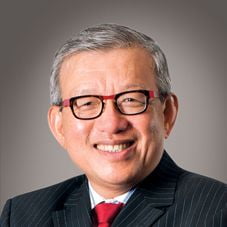Many South-east Asian countries are blessed with an abundance of natural resources. Singapore has positioned itself as one of the region’s largest commodity trading hubs offering tax-friendly incentives, transparent financial and legal sectors, excellent infrastructure and a skilled workforce. These factors have enabled Singapore to become an attractive destination for multinational companies’ regional headquarters.
‘We are a regional business hub with investors coming to Singapore to establish partnerships and engage with people who understand the Asian region’, explains Ho Meng Kit, chief executive officer of the Singapore Business Federation.
Over the years, the government has anticipated global economic trends and has today positioned Singapore as a successful trade, logistics and financial centre. Through public and private investments in new technologies and innovation, Singapore is positioning itself as a centre of excellence in key industries. Multinationals and tech start-ups are delivering urban, industrial and infrastructure solutions designed to create ‘smart’ and ‘sustainable’ cities across Asia.
Through the establishment of the Singapore International Commercial Court, Singapore International Arbitration Centre and Singapore International Mediation Centre, Singapore has become Asia’s alternative dispute resolution hub. With fast-paced economic development taking place across Asia and foreign investors pursuing more cross-border projects, Singapore is supporting the resolution of international disputes.

Singapore’s economic strengths are based on credibility, integrity, transparency and the city-states’ role as a reliability partner for the region.
ASEAN 2018 – ‘Resilience and Innovation’
Having recently celebrated its fiftieth anniversary, the Association of Southeast Asian Nations (ASEAN) remains a regional platform for peace, economic integration and international cooperation. Chairing the Association in 2018, Singapore intends to create a more integrated, competitive and prosperous ASEAN through the theme ‘Resilience and Innovation’.
Singapore will promote ASEAN inter-dependence while upholding a rules-based regional mandate to combat terrorism, international crime and cyber-security issues.
Singapore also hopes to strengthen the region’s economic and financial resilience by encouraging free and open trade through agreements such as the ‘Regional Comprehensive Economic Partnership’.
‘We need to make sure people are aware of the benefits of such agreements and that they are in a position to fully utilize these cross-border trade initiatives’, says Ho.
Singapore will also encourage ASEAN member countries to contribute to the region’s digital economy to facilitate connectivity, increase trade flows and reduce ‘red-tape’.
Connecting with China’s ‘Belt and Road Initiative’
This year marks the fifteenth anniversary of the ASEAN-China Strategic Partnership (China became the first dialogue partner to sign the Treaty of Amity and Cooperation in South-east Asia). As coordinator for ASEAN-China relations, Singapore aims to promote greater mutual understanding and encourage further cooperation between China and ASEAN members.
Today, China is Singapore’s largest trading partner while Singapore is one of China’s top foreign investors. In addition to trade and investment, cooperation includes human resource development and environmental protection.
Both governments are involved in flagship projects including Suzhou Industrial Park, Tianjin Eco-City and the Sino-Singapore (Chongqing) Connectivity Initiative.These projects are contributing to China’s ‘Belt and Road Initiative’ (BRI), designed to connect China to the world.
Launched by President Xi Jinping in 2013, BRI is a massive infrastructure and economic development project to create a new ‘Silk Road’ for the 21st Century.
According to Dr. Ernest Kan, deputy managing partner of Deloitte Singapore and board member the Chinese Services Group, the initiative involves close to seventy countries (sixty-two per cent of the global population), thirty-one percent of global GDP and thirty-three percent of global trade volume.
‘China has emerged as the world’s largest provider of liquidity and the most dominant exporter of savings’, explains Kan. ‘The country’s vast reserves will have a profound effect on global financial markets’.
The Asian Infrastructure Investment Bank, China Development Bank, China’s Silk Road Fund and the Export Import Bank of China are providing the funding for infrastructure, logistics and industrial development projects relating to BRI.
Singaporean companies and certified consultants are working on BRI related projects by providing management expertise and facilitating better cross-cultural and cross-border understanding.
With increased international trade and investment, Singapore will play an important role in protecting companies as they reach out to new international markets by offering arbitration and mediation services.
The Singapore International Mediation Centre and the Mediation Center of the China Council for Promotion of International Trade / China Chamber of International Commerce signed a Memorandum of Understanding in September last year to cooperate on such matters.
‘In the not too distant future, the global economy will pivot towards the Asian region’, concludes Kan. ‘Asia’s influence and impact on the world stage will create both challenges and opportunities for China, Singapore and the rest of the world’.



